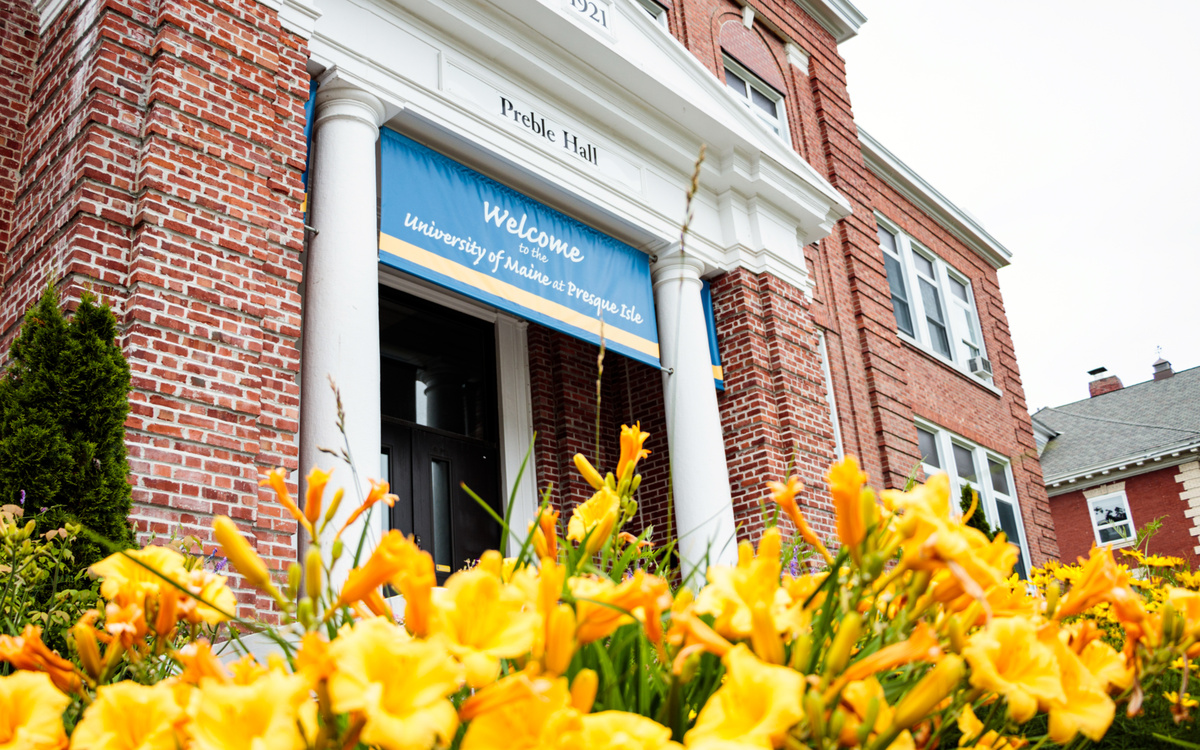
PRESQUE ISLE, Maine – The University of Maine at Presque Isle is bucking many state and national enrollment trends in the wake of the pandemic, welcoming more than 1,200 students to the fall 2022 semester, or a 10 percent increase over last year. In terms of new students, both first time and transfers, UMPI has seen a 15 percent increase from last year, and a 40 percent increase in new enrollments prior to the pandemic.
“This is the most geographically diverse group of students that UMPI has experienced in its history — in terms of students from around the country, internationally, and in terms of how they experience their education: either on campus, in classrooms, or from their homes around the world,” UMPI President Ray Rice said. “Being able to serve these multiple populations of students is helping us to thrive in what is an extremely difficult time for many higher education institutions post-pandemic.”
UMPI is experiencing increases in traditional out-of-state students, in Canadian and International students, and in students participating in its YourPace (competency-based education) program.
In terms of out-of-state students, UMPI has welcomed 157 students from 17 states, a 10 percent increase from last year. That increase is attributed in part to increased online course offerings and the out-of-state tuition rate reduction the campus implemented several years ago — it meant a 40 percent drop in tuition for out-of-state students — and in part to athletics recruiting efforts. UMPI athletics provides competitive schedules and the opportunity for students to be successful as two- or even three-sport scholar-athletes at the NCAA Division III level. Another incentive that may be contributing to the increase is that UMPI provides out-of-state students a $1,500 annual housing grant for those who live on campus.
The number of Canadian and International students attending UMPI is at 82 as of the start of the semester, which is the largest number the campus has seen in a decade. It’s an 18 percent increase over the previous year and a 150 percent increase from five years ago. Part of this can be attributed to the loosening of travel restrictions due to COVID-19 and the increased availability of programs online. For Canadian students, UMPI’s Next Door tuition savings program is also a factor. The program allows Canadian students to take advantage of in-state tuition rates, a 55 percent reduction in cost. Another aspect of this growth is UMPI’s Teacher Education program, which provides a pathway for Canadian post-baccalaureate students to gain their teacher certification. A growing number of Canadian students has taken interest in this program in the past few years, both its on-site and online offerings, due to its quality and flexibility, especially for students already working full-time.
UMPI’s YourPace program continues to demonstrate strong growth in undergraduate offerings, with 375 students enrolled for the first 8-week fall semester session, and 291 enrolled already for the second fall session, putting both at more than a 50 percent increase over last year. In the YourPace Master’s in Organizational Leadership program (MAOL), there are 23 majors enrolled, or a 25 percent increase from last year. YourPace provides a competency-based online pathway that gives adult learners the ability to complete a bachelor’s degree online, in as few as 18 months, for under $10,000, and a master’s degree in as soon as a year for less than $12,000. In addition to affordability and time to completion, there are several aspects of the program that are especially attractive to working adults, including prior learning assessment (college credit for past work and life experiences), fully asynchronous coursework, and six convenient start dates per year.
“We are so pleased to see this growth over the last year and proud of the work UMPI has done to create a high quality and very affordable college experience for all of our students,” Sue White, UMPI director of admissions, said. “We’ve been able to hold the line on tuition — and also fees — for several years and are the top regional college in Maine for graduates with least debt, all of which is no doubt playing a part in the increases we’re seeing.”







